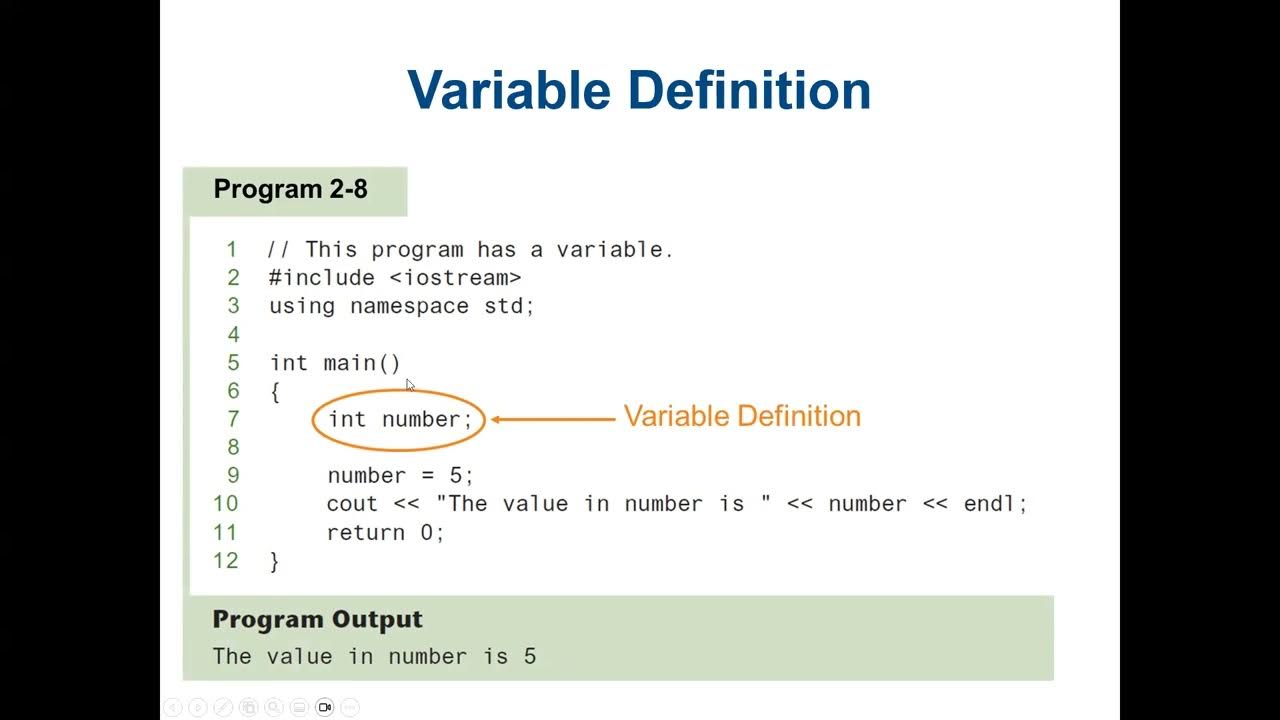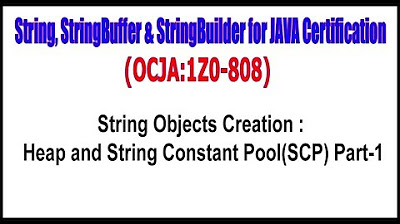Comments in C++ (Exercise)
Summary
TLDRIn this lecture, we delved into C++ comments and string literals, analyzing how they interact with the `cout` function. We discussed several exercises to illustrate output behavior, including examples that resulted in compilation errors due to comment interference with string literals. Key takeaways included understanding the proper use of double quotes and comment delimiters to avoid syntax issues. Through these practical examples, viewers gained insights into effectively writing and troubleshooting C++ code, ensuring clarity and correctness in their programming practices.
Takeaways
- 😀 Understanding the purpose of comments in C++ is essential for effective coding.
- 📝 There are different types of comments in C++, including single-line and multi-line comments.
- 💡 When comments are enclosed in double quotes, they are treated as string literals and printed as-is.
- 🚫 Compiling errors can occur if comments interfere with string literals, especially when delimiters are mismatched.
- 🔍 The first exercise demonstrated that `std::cout << "/*";` outputs `/*`, despite it being a comment delimiter.
- 🔄 The second exercise showed that `std::cout << "*/";` outputs `*/`, similarly treated as a string.
- ❌ The third exercise resulted in a compilation error due to the unbalanced comment delimiters and unmatched double quotes.
- 🔧 To fix compilation errors, ensuring that all comment and string delimiters are properly paired is crucial.
- ✅ The final exercise confirmed that `std::cout << "/*";` outputs `/*`, highlighting the importance of correct syntax.
- 📚 Overall, mastering comment syntax in C++ helps avoid errors and improves code readability.
Q & A
What types of comments are discussed in the lecture?
-The lecture discusses the use of single-line comments (//) and multi-line comments (/* ... */) in C++.
What happens when a comment delimiter is placed inside double quotes?
-When comment delimiters are placed inside double quotes, they are treated as part of a string literal and printed as they are.
What is the output of the first exercise statement that prints '/*'?
-The output is '/*' because it is enclosed in double quotes, making it a string literal.
Why does the third exercise statement result in a compilation error?
-The third statement results in an error because the starting comment delimiter '/*' comments out the following double quote, leaving an unmatched quote.
How can the error in the third statement be fixed?
-The error can be fixed by ensuring that the double quotes are properly paired, which can be done by adding an additional double quote to the statement.
What is the expected output of the second exercise statement that prints '*/'?
-The output is '*/' since, similar to the first exercise, it is treated as a string literal due to being enclosed in double quotes.
How does the compiler treat the fourth exercise statement?
-The compiler treats the fourth statement correctly since it has the comment delimiters that surround the double quotes, allowing the string '/*' to be printed without errors.
What does the speaker emphasize about the importance of comments in C++?
-The speaker emphasizes that understanding how the compiler interprets comments and string literals is crucial for avoiding errors and producing the desired outputs.
What lesson can be drawn from the exercises given in the lecture?
-The exercises highlight the need for careful attention to syntax in C++, particularly regarding the placement of comments and string literals to prevent compilation errors.
What conclusion does the speaker reach at the end of the lecture?
-The speaker concludes that the lecture clarifies the exercises and encourages viewers to try them out to enhance their understanding of C++ comments and string handling.
Outlines

Cette section est réservée aux utilisateurs payants. Améliorez votre compte pour accéder à cette section.
Améliorer maintenantMindmap

Cette section est réservée aux utilisateurs payants. Améliorez votre compte pour accéder à cette section.
Améliorer maintenantKeywords

Cette section est réservée aux utilisateurs payants. Améliorez votre compte pour accéder à cette section.
Améliorer maintenantHighlights

Cette section est réservée aux utilisateurs payants. Améliorez votre compte pour accéder à cette section.
Améliorer maintenantTranscripts

Cette section est réservée aux utilisateurs payants. Améliorez votre compte pour accéder à cette section.
Améliorer maintenantVoir Plus de Vidéos Connexes

Input and Output in C++

Introduction to C++, The Parts of a C++ Program, Identifier Naming Rules, output statements

Hello World #2 | C++ | Bahasa Indonesia

Learn C++ in 10 Minutes !! C++ Tutorial for Beginners

OCJA(1Z0 - 808) || String Objects Creation Heap and String Constant Pool (SCP) Part - 1

Namespace STD #4 | C++ | Bahasa Indonesia
5.0 / 5 (0 votes)
